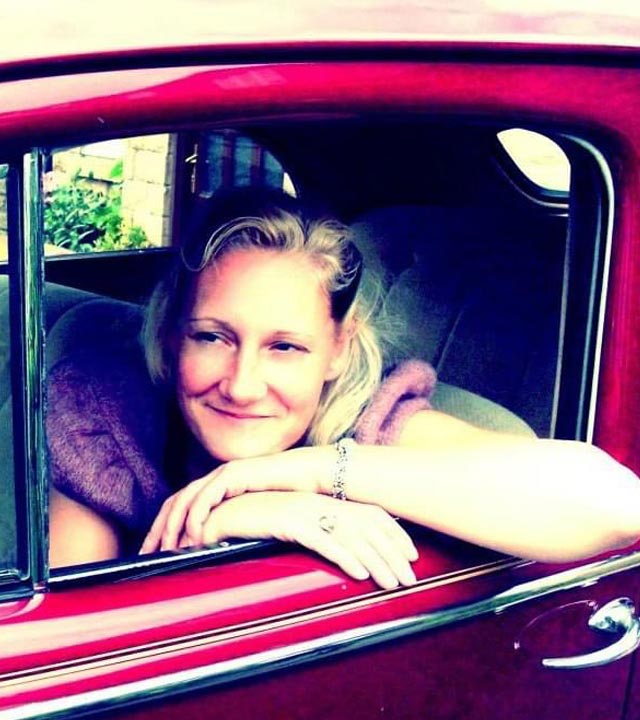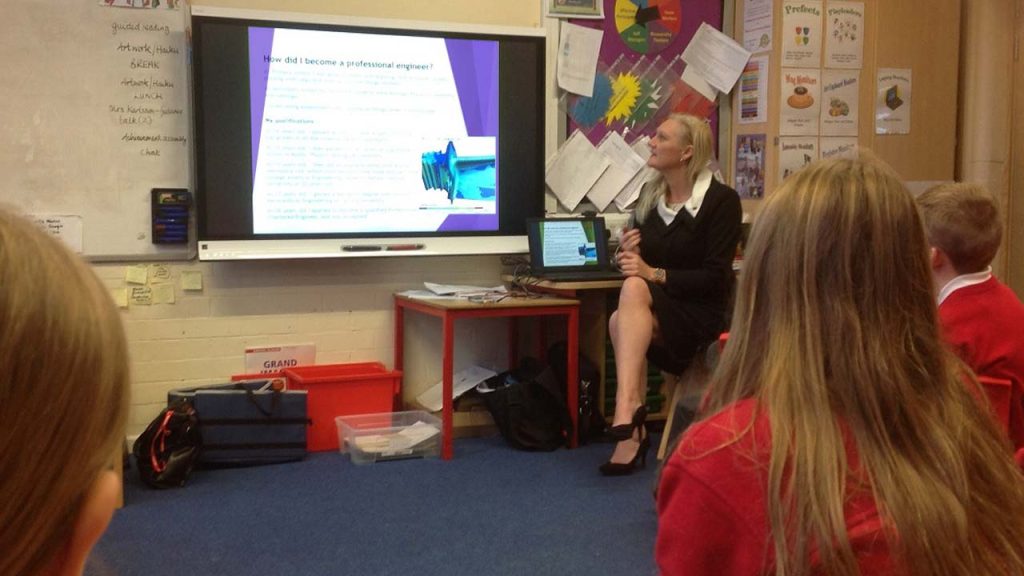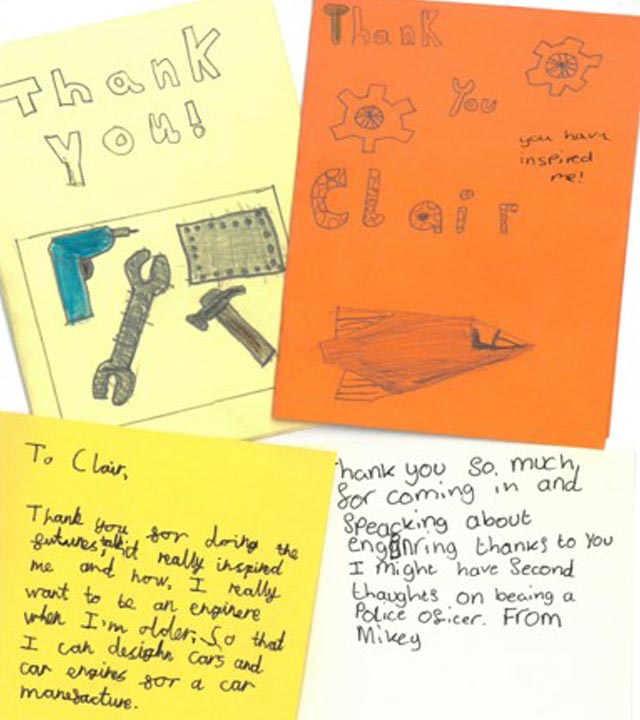Head of operations, Clair Karlsson, runs Women in Engineering and Business (WEB), a supportive platform for women within Expleo. The network is a place where women can feel comfortable to talk about issues they face in their day-to-day roles. In recognition of International Women’s Day, Clair shared her motivations for starting the group and why the progress in gender equality during her own career is not yet enough.

Clair restores old cars in her spare time
Our group started more through circumstance than any grand plan. I was the only female manager in the office at the time, and a bit older and more experienced. A few of the girls in the office, and not just in my team, were coming to me for advice around certain issues, perhaps with a colleague or even their manager.
This turned into a lunch session, in our own time. The girls brought their sandwiches and we’d just chat about any problems and then share our feelings and concerns. I offered a range of ‘services’ such coaching and mentoring, personal development, networking opportunities and advice on working within a male-dominated environment. I helped with dispelling disputes within the workplace and escalated ideas to improve wellbeing for women.
WEB has opened a very exciting, welcoming and supportive platform for women to feel comfortable to talk about issues they face in their everyday roles, whether facing challenges with male colleagues or mapping out their career. This is way more than a ‘tick in the box’ exercise for Clair who gives a lot of her time and attention to her role. Her insight is invaluable.
WEB participant
My manager recognised the good it was doing so asked if I could widen the net across the organisation. We found a name: Women in Engineering and Business (WEB). The hour-long sessions became more structured. I’d start with training and mentoring, such as how to be assertive rather than aggressive, or discussing the ‘colour wheel’ as a way of responding to different personalities. These management techniques can be very empowering for women in a male-dominated situation or environment. Then I’d open the discussion to the floor. If anyone wanted to raise anything with me personally, then we’d do that separately.
Hold your emotions inside
My career started in 1989 with an apprenticeship with a British aircraft manufacturer. It was a prestigious programme, alongside 10 other young women. As far as I know, I’m the only one who is still working in an engineering role. That shows how tough it is to get ahead in this industry. In my first placement after university, I joined a team of 240 designers – as the only woman. It was scary. In those days, graduates were also resented by the drawing board team, so it was a double whammy.
I learnt quickly that women are treated differently. Simple as that. I had to hold my emotions inside. If you get angry, they say you’re overreacting. If you get teary, then you lose their respect. They feel like they’ve won. It’s easier now because I’m a manager. But I can see why women decide not to stick with a profession they enjoy. That’s sad.
A lot of this attitude comes from the way individual men are brought up. I don’t see it as an organisational failing. I’m pleased that Expleo has made a pledge to ensure the same career development opportunities are open to everybody within our group, including more female talent in management roles, and to fight bias in everyday business life. The industry has come a long way since I joined, albeit from a low bar. In 2021, there is zero tolerance to sexual harassment or physical abuse. But does inequality continue? Yes, absolutely. In fact, 46% of women have reported experiencing discrimination in the European tech sector.
Public perception
There are still plenty of male engineers who let gender cloud their opinion. It’s hard to deal with. Of course, this isn’t just a challenge for engineering. I think we’ve all been in a situation when a car salesman or electrician struggles to look you in the eye or insists on speaking to your partner instead.
Why have I persevered? I think it goes back to my Swedish upbringing. I always had freedom to tinker with wiring and appliances around the house. There’s less of a gender divide in Scandinavian countries about what constitutes a male or female profession. My parents never thought it was strange for one second that I wanted to go into engineering.

WEB also gets involved with schools and promoting engineering to girls. In the UK, which has one of the lowest percentages of women in engineering (12%), there is less visibility about what engineering actually is. Television adverts talk about boiler engineers, car engineers, plumbing engineers etc. No, they are technicians, mechanics and plumbers! They are not engineers! Young girls think that being an engineer means grubby overalls and dirty fingernails. We tell them that a real engineering degree is every bit as demanding as becoming a doctor. As an engineer, you will spend most of our time in open-plan offices, behind high-powered computers, inventing, designing and solving problems. The penny drops and their eyes open wide.






